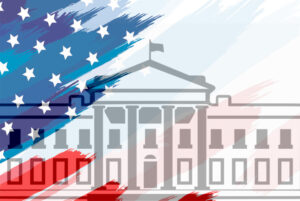In a recent post by MicroStrategy’s Michael Saylor, he claimed that Donald Trump is evolving in his view of Bitcoin, even going so far as to call it “money.” While this statement remains unverified, it hints at a potential shift in U.S. policy that could have a profound impact on Bitcoin’s status as a financial asset. If Trump’s stance indeed aligns with treating Bitcoin as currency rather than a taxable asset, it could open up a new era for cryptocurrency within the U.S. economy and beyond.
Trump’s Evolving Stance on Bitcoin
Trump’s opinion on Bitcoin has historically been sceptical. He once dismissed it outright, viewing it as a threat to the dollar’s dominance. The U.S. dollar’s role as the global reserve currency has traditionally given the U.S. enormous geopolitical leverage, and Bitcoin’s rise could pose a challenge to that power. However, Trump’s latest remarks suggest a reconsideration of this position. This evolution mirrors the journey many have taken with Bitcoin, where initial scepticism gave way to acceptance after recognizing its potential as a decentralized asset.

The Call for Reduced Capital Gains on Bitcoin
One of the most significant aspects of Trump’s alleged comments is his support for ending capital gains taxes on Bitcoin transactions. If implemented, this would eliminate one of the most complex barriers for Bitcoin users: tax reporting on small transactions, such as purchasing a cup of coffee. This policy shift has support from various political figures and could spur mainstream Bitcoin adoption in the U.S. by making it more accessible and user-friendly.
Separating Money from the State
The concept of Bitcoin challenges traditional assumptions about money. Unlike fiat currency, which is controlled by central banks and government policies, Bitcoin operates independently of these institutions. Over the past decade, scepticism about central banking has increased, particularly with the Federal Reserve’s influence over monetary policy. Trump’s base, as well as followers of other political figures, have increasingly questioned whether money must be controlled by a central authority. This perspective fuels support for Bitcoin, which many view as a path toward separating money from state control.

Bitcoin as a Tool for Economic Freedom
If Bitcoin were recognized as “money” by the U.S. government, it could be used more broadly in everyday transactions without legal ambiguity. Officially recognizing Bitcoin in this way would likely lead to a surge in wallet applications, e-commerce solutions, and peer-to-peer payment platforms. Over time, such developments might even counterbalance the U.S.’s current economic policies that rely heavily on dollar issuance.
A Decisive Policy Shift on the Horizon?
The U.S. government’s stance on Bitcoin has varied, with different agencies disagreeing on regulating it. However, a significant policy change may be imminent if Trump’s purported views gain traction. By positioning Bitcoin as money, the U.S. could reduce its reliance on central control over currency, align itself with emerging financial technologies, and address public demand for decentralized financial options.
